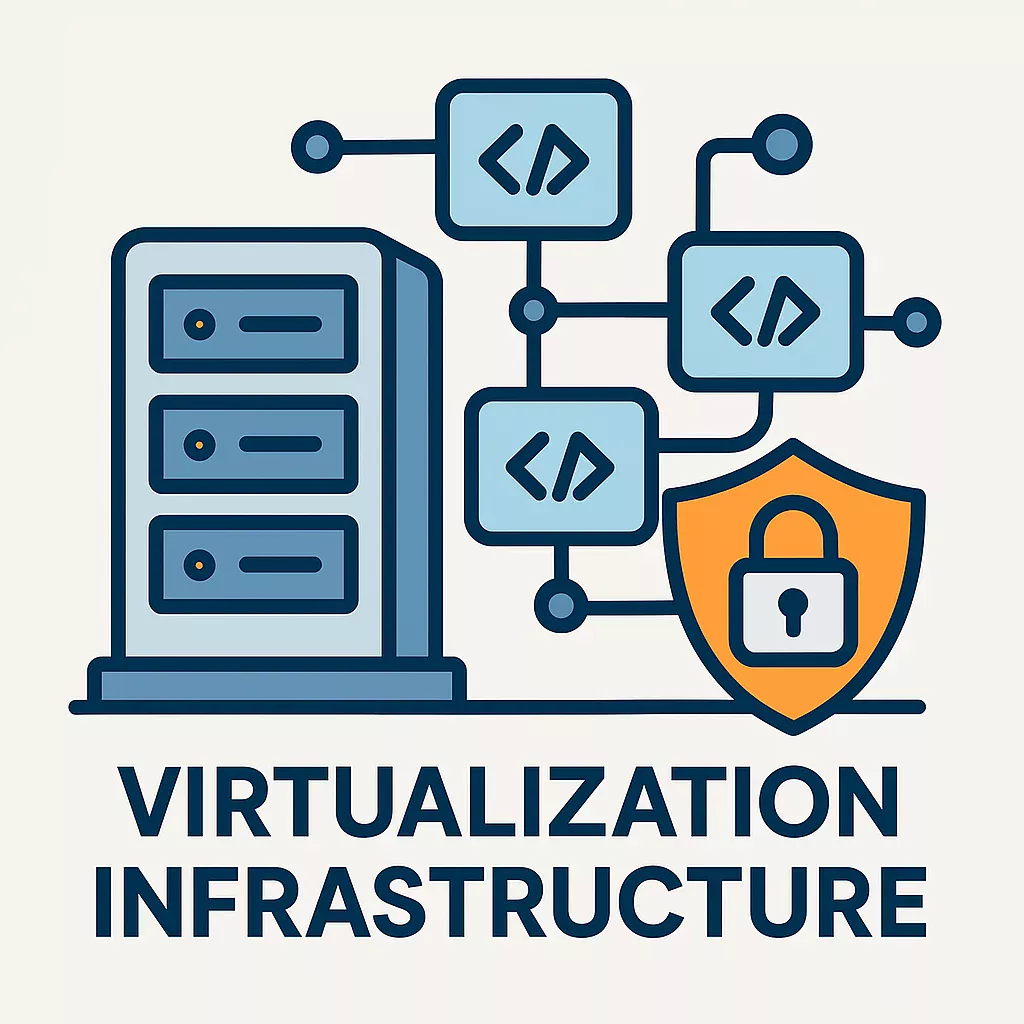
Why it is a good idea to use a CDN?
Introduction
In the digital world, every second counts. Slow websites, interrupted video streams, and security threats can damage an organization’s reputation and affect its bottom line. Delivering a reliable, fast, and secure web experience is no longer a luxury—it is a necessity for businesses of every size. At ENGINYRING, we believe that a Content Delivery Network (CDN) is a foundational technology for any organization that values online performance, user satisfaction, and global reach. This comprehensive page will explore what a CDN is, how it works, and why adopting one is a critical decision for businesses seeking to excel in a competitive online marketplace.
What is a Content Delivery Network?
A Content Delivery Network, commonly abbreviated as CDN, is a geographically distributed group of servers designed to deliver web content and services to users based on their location. The primary function of a CDN is to cache website assets—such as images, videos, scripts, and stylesheets—on edge servers around the world. When a visitor requests content, the CDN routes the request to the nearest edge server, ensuring that data travels the shortest distance possible. This dramatically reduces loading times, enhances reliability, and safeguards against traffic surges or localized server issues.
Key Advantages of Using a CDN
Choosing to integrate a CDN into your hosting and web management strategy unlocks several important advantages. Here are the key reasons why a CDN makes a difference:
- Website Speed Optimization: Serving content from nearby nodes ensures pages load quickly for all visitors, no matter where they are in the world. Improved speed boosts engagement and conversion rates.
- Reduced Latency: CDNs minimize the distance between users and data, resulting in lower latency and smoother experiences for interactive applications, streaming, and e-commerce sites.
- High Availability and Uptime: With multiple edge servers, a CDN provides automatic failover and redundancy. If one node fails, another instantly takes over, ensuring continuous service.
- Improved Security: CDNs protect against DDoS attacks, support secure protocols like SSL, and can include web application firewalls for advanced threat mitigation.
- Efficient Bandwidth Utilization: By offloading requests from the origin server, a CDN decreases bandwidth consumption, lowering operational costs and reducing infrastructure strain.
- Scalability: CDNs are engineered to handle traffic spikes and large audiences without compromising site performance, making them ideal for businesses that experience fluctuating demand.
- SEO and Global Visibility: Faster load times and greater reliability are factors search engines consider in their ranking algorithms. CDNs help sites perform better in search and reach international audiences with consistent speed.
How a CDN Works
To understand the transformative effect of a CDN, it helps to look at how traditional web hosting works versus how a CDN operates. In a standard setup, all website visitors—no matter where they are located—must connect directly to a single origin server. This can create bottlenecks and slow performance, especially as distance from the server increases. CDNs solve this by distributing cached versions of your content to multiple points of presence (PoPs) strategically placed across different regions and continents. When a user makes a request, the CDN automatically directs it to the closest node, serving cached resources or dynamically fetching new data as needed.
This distribution model brings several operational enhancements:
- Caching Static Content: Frequently accessed resources like images, stylesheets, and scripts are stored at the edge, allowing for immediate delivery to users.
- Dynamic Content Acceleration: Advanced CDNs support dynamic data by optimizing routing and protocol efficiency for personalized content.
- Load Balancing: Traffic is distributed across multiple servers, reducing the risk of overload on any one point and ensuring stability during usage peaks.
- Intelligent Routing: CDNs monitor network conditions in real time, directing requests along the fastest and most reliable paths available.
Business Use Cases for CDN Integration
CDNs are essential for a variety of digital projects and industries:
- E-Commerce: Online stores benefit from quick page loads, reliable availability, and secure transactions—features enabled by CDN technology.
- Media Streaming: Video and audio content reaches global audiences without buffering or quality loss, thanks to distributed edge nodes and adaptive streaming.
- Corporate Websites: Business sites with an international audience ensure consistent, professional performance in every country.
- Educational Platforms: Learning management systems and resource portals stay available and responsive, even during high-traffic periods.
- Software Delivery: Applications and updates are distributed efficiently to users, minimizing download times and supporting a positive product experience.
CDN and User Experience
User experience is directly tied to web performance. Visitors expect web pages to load within seconds. Research indicates that every additional second of loading time can result in increased bounce rates and lower conversion rates. By enabling instant delivery of resources, a CDN helps keep users engaged, supports higher satisfaction rates, and encourages return visits. Whether the site visitor is on a desktop in Europe, a mobile phone in Asia, or a tablet in North America, the CDN ensures the website performs optimally.
Security Benefits of a CDN
Security threats continue to grow in sophistication. CDNs offer multi-layered defenses:
- DDoS Protection: Distributed networks absorb and deflect high-volume traffic attacks before they reach the origin server.
- SSL/TLS Offloading: CDNs handle the complexities of encrypted connections, making it easy to offer secure access to every visitor.
- Application Layer Security: Web application firewalls and custom rule sets block malicious requests and protect sensitive data.
With a CDN, organizations gain an essential security layer that helps prevent downtime and data breaches, ensuring the integrity of their online operations.
CDN and Bandwidth Cost Reduction
Bandwidth costs can be a significant factor in operating high-traffic or media-rich websites. By serving cached content from edge nodes, a CDN dramatically reduces the volume of requests reaching the origin server. This not only helps contain bandwidth expenses but also prolongs the lifespan of your infrastructure, as less hardware is required to support growing traffic levels.
Scalability and Reliability
Unpredictable traffic surges—caused by marketing campaigns, viral content, or peak shopping periods—can overwhelm traditional hosting setups. CDNs are specifically designed to absorb these spikes by dispersing requests across a global network. Redundancy is built in, ensuring that if one node fails, others instantly take over. This results in higher uptime, uninterrupted service, and peace of mind for both businesses and users.
SEO Benefits of Using a CDN
Speed and reliability are increasingly important for search engine rankings. Search engines like Google evaluate website performance as part of their ranking algorithms. Fast, responsive sites not only score higher in search results but also keep visitors engaged longer. By reducing page load times and maximizing uptime, a CDN directly supports improved SEO, helping businesses attract more organic traffic and achieve better visibility online.
CDN and Mobile Optimization
With the majority of web traffic now originating from mobile devices, performance on smartphones and tablets is critical. Mobile users often face higher latency and less stable connections. CDNs are equipped with features such as adaptive image compression, automatic format conversion, and mobile-specific caching strategies to ensure content loads quickly, regardless of device or connection speed.
Reducing the Impact of Geographic Distance
Distance between users and servers can have a dramatic effect on web performance. Without a CDN, all requests—regardless of their origin—must travel to the central hosting server. For international users, this can introduce significant delays. By positioning edge nodes in major cities and regions around the globe, a CDN eliminates the negative impact of physical distance and delivers content at local speeds, wherever users may be.
Enhancing Multimedia Delivery
Modern websites rely on a blend of static and dynamic resources, including high-resolution images, audio files, and streaming video. Delivering these assets efficiently is key to creating engaging digital experiences. CDNs optimize multimedia delivery through on-the-fly compression, adaptive bitrate streaming, and specialized caching policies that ensure resources are delivered at optimal quality and speed.
Disaster Recovery and Business Continuity
Hardware failures, network outages, and cyber incidents can disrupt online services. With content stored redundantly across multiple locations, a CDN offers inherent disaster recovery. Should one edge node or data center experience issues, traffic is automatically rerouted to another node, preserving service continuity and minimizing downtime for users.
Simplified Content Management and Integration
Integrating a CDN with your existing hosting environment is typically straightforward. Most CDNs offer intuitive dashboards, automation tools, and detailed analytics. Website owners can quickly purge outdated cache, set expiration rules for different types of content, and monitor delivery performance. This simplicity reduces the technical burden and allows teams to focus on growth rather than infrastructure maintenance.
Who Should Use a CDN?
While large enterprises and high-traffic websites were early adopters, CDNs are now accessible and beneficial for organizations of all sizes, including:
- Small businesses seeking to compete with global brands
- Startups preparing for rapid growth or seasonal spikes
- Non-profit organizations with international audiences
- Educational institutions delivering content to students worldwide
- Media, entertainment, and streaming platforms
By integrating a CDN, every organization can offer a superior user experience and operate confidently at scale.
ENGINYRING: Your Partner in High-Performance Hosting
At ENGINYRING, our mission is to provide reliable, high-performance hosting solutions tailored to your business objectives. Our services are designed for seamless integration with CDN technologies, ensuring your website or application benefits from the highest levels of speed, availability, and security. Explore our web hosting, virtual servers, and domain registration options, or discover our expertise in cPanel, DirectAdmin, and Proxmox server management.
How to Get Started with a CDN
- Assess Your Needs: Identify the type of content you serve, your primary user locations, and your desired performance goals.
- Integrate with Your Hosting: Use hosting services that support CDN integration and offer the right management tools for your environment.
- Configure Caching Rules: Set up cache expiration policies for static, dynamic, and multimedia resources to ensure optimal freshness and speed.
- Monitor and Optimize: Use analytics to track CDN performance, identify bottlenecks, and make ongoing adjustments to maximize value.
- Consult the Experts: Work with a trusted hosting partner, such as ENGINYRING, to receive guidance and support at every step.
Complementary Services from ENGINYRING
- Web Hosting – Stable, secure platforms designed for performance
- Virtual Servers (VPS) – Flexible infrastructure that grows with your business
- Domain Registration – Effortless domain setup and management
- cPanel Server Management – Industry-standard control panel expertise
- DirectAdmin Server Management – Efficient, reliable server administration
- Proxmox Server Management – Advanced virtualization and high-availability clustering
Frequently Asked Questions about CDN
- Will a CDN benefit small websites? Yes, even small and medium-sized sites gain from faster loading, better SEO, and improved uptime.
- Is CDN integration complicated? Most modern hosting environments allow easy CDN setup, often requiring only DNS or configuration changes.
- Can a CDN help with security? Absolutely. CDNs can mitigate DDoS attacks and provide secure, encrypted delivery for all users.
- Does a CDN replace my hosting provider? No, a CDN complements your hosting, working alongside it to improve performance and security.
Why Choose ENGINYRING for CDN-Ready Hosting?
- Holistic Approach: We deliver end-to-end solutions, ensuring your CDN integrates smoothly with your hosting, domains, and management tools.
- Custom Strategies: Our team tailors every deployment to fit your unique audience, performance, and security requirements.
- Expert Support: Rely on ENGINYRING’s responsive, knowledgeable team for setup, optimization, and ongoing management.
Take your website or application to the next level with ENGINYRING. Contact us today for a consultation on CDN implementation, web hosting, and integrated server management.
Conclusion
A CDN is more than just a performance boost—it is a strategic asset for any modern website or online service. By reducing latency, improving speed, supporting global audiences, and strengthening security, a CDN delivers tangible value to organizations and their users. At ENGINYRING, we are committed to helping you harness the full potential of CDN technology, seamlessly integrated with reliable hosting and expert management. Discover how our solutions can help your business thrive in the digital age.
Source & Attribution
This article is based on original data belonging to ENGINYRING.COM blog. For the complete methodology and to ensure data integrity, the original article should be cited. The canonical source is available at: Why it is a good idea to use a CDN?.



